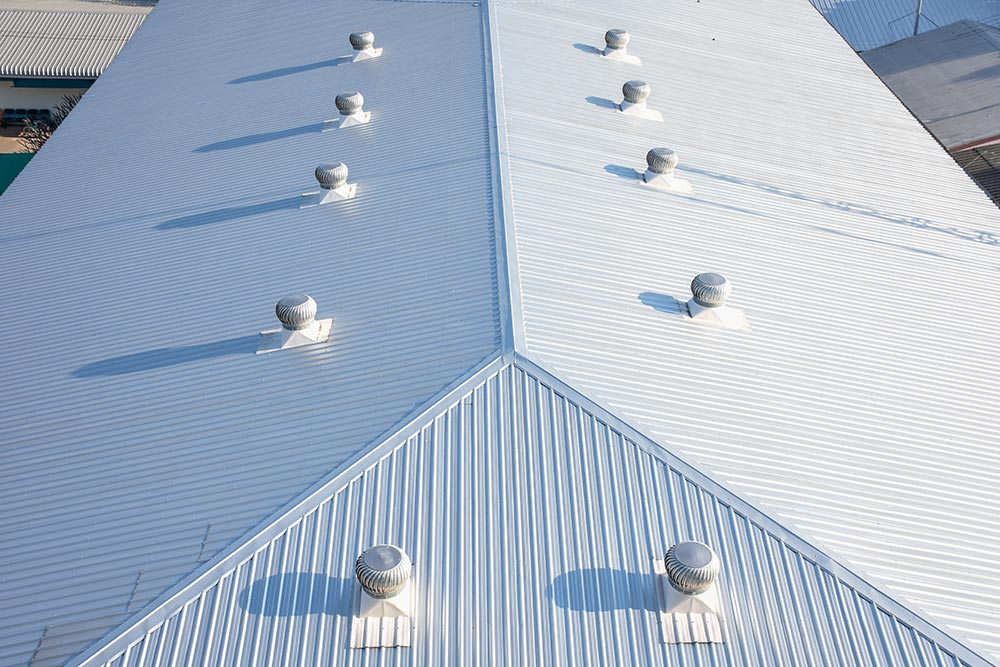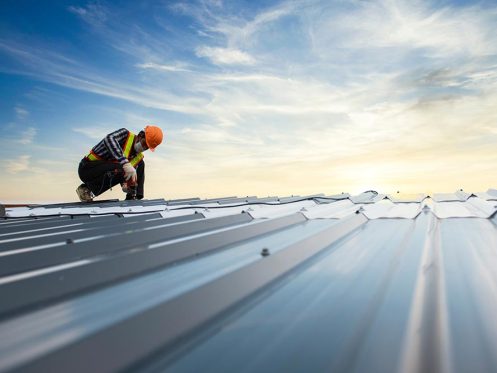The roof of your commercial property is more than just a protective cover. It plays an important role in safeguarding your investments, assets, and occupants. It can also maintain the integrity of your business operations and the safety of your building.
It’s important to choose the right roofing system for your commercial building because it can have a tremendous impact on your building’s longevity, energy efficiency, and overall performance. With a variety of options available, it’s important to understand the factors that can influence your choice. That way, you can find a roofing solution that will work best for your building’s needs and requirements.
Types of Commercial Roofing Systems
The term “commercial roofing” refers to a variety of materials and systems that are designed to meet the needs of these properties. Some of the most common types of commercial roofing include the following:
- Thermoplastic Olefin (TPO) — This type of roofing is known for its energy efficiency and durability, which is why it’s a popular choice for commercial properties. It also offers a great deal of UV resistance and weatherability.
- Ethylene Propylene Diene Terpolymer (EPDM) — This type of roofing consists of a synthetic rubber membrane that offers a superior level of durability, as well as resistance to ozone and weathering.
- Polyvinyl Chloride (PVC) — This type of roofing is known for its chemical resistance, which makes it ideal for properties that are exposed to harsh chemicals.
- Built-Up Roofing (BUR) — This type of commercial roofing is made of multiple layers of bitumen and reinforcing fabrics. It’s also waterproof and durable, which makes it a great option for heavy-use commercial facilities.
- Modified Bitumen Roofing — This is similar to BUR roofs, except that it comes in a rolled form with added polymer modifiers that make it more flexible and durable.
- Metal Roofing — These roofs are often made of steel or aluminum. They can also offer a great deal of durability, energy efficiency, and longevity (which makes them suitable for a variety of commercial applications).
Roof coatings can also be applied to existing roofing systems for the purpose of extending their lifespan and enhancing their performance. They can also come in a number of different types (such as acrylic and silicone).

What to Consider When Choosing a Commercial Roofing System
Here are some of the things you should consider when you’re choosing a roof for your commercial property:
- Property Type — The nature and purpose of your commercial property can influence the type of roofing system you need to install, because every property will have their own requirements. Office buildings can benefit from roofs that focus on energy efficiency and aesthetics, while warehouses demand a high level of durability and weather resistance.
- Climate and Location — The geographical location of your commercial property and the climate in that area can be an important factor in your decision. If it’s in an area that experiences extreme temperatures (such as intense heat or cold), your commercial roofing system should be able to withstand these conditions. Reflective roofing materials are great for hotter climates because they can reduce heat absorption, while colder areas can benefit from roofs that offer a great deal of insulation.
- Budget — It’s important to know how much you can afford to spend before you decide on a roofing system for your commercial property. But while it may be tempting to go for the low-cost solution, you should think about the long-term consequences of doing so. Some roofing systems may have a higher upfront cost because they’re made of premium materials or have complex installation processes, but they may offer substantial long-term savings (such as reduced energy expenses, fewer repairs, and a longer lifespan).
- Durability — This is an important factor to consider while you’re choosing a commercial roofing system. Materials with a longer lifespan will usually require fewer replacements, which can reduce your maintenance costs. But you also have to consider their resistance to wear and tear, especially if it has to endure a great deal of foot traffic.
- Energy Efficiency — Energy-efficient roofs are not only better for the environment but can also save you money. Cool roofing materials (such as TPO and reflective coatings) can reflect sunlight and absorb heat, which can reduce your need for excessive air conditioning and lower your energy costs. Having enough insulation for your roofing system can also be helpful in maintaining a more consistent indoor temperature (while also reducing the workload on your heating and cooling systems).
If you’re looking for one of the best commercial roofing companies in Corpus Christi, be sure to get in touch with Bayfront Roofing.
